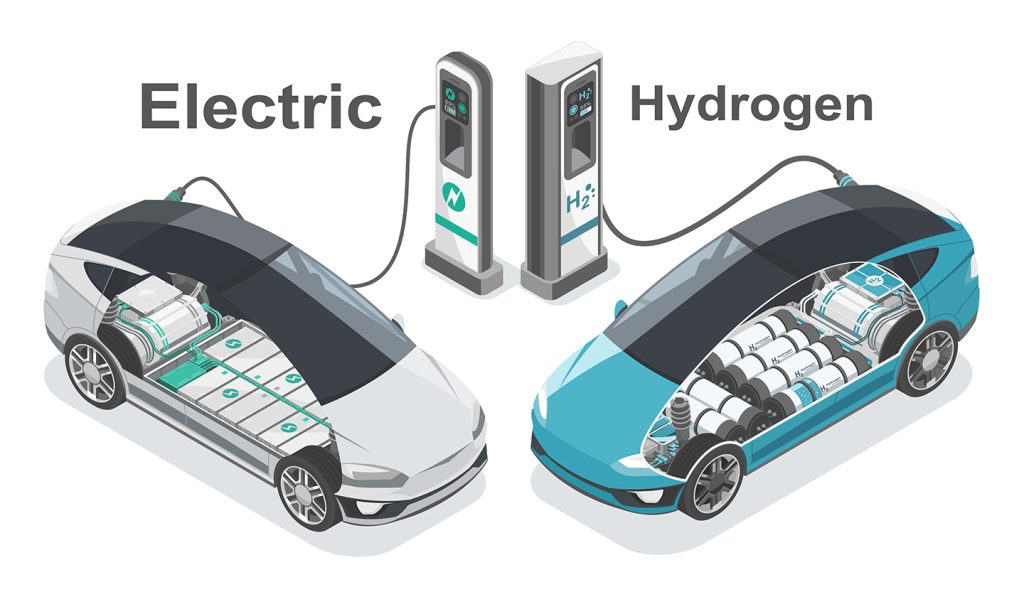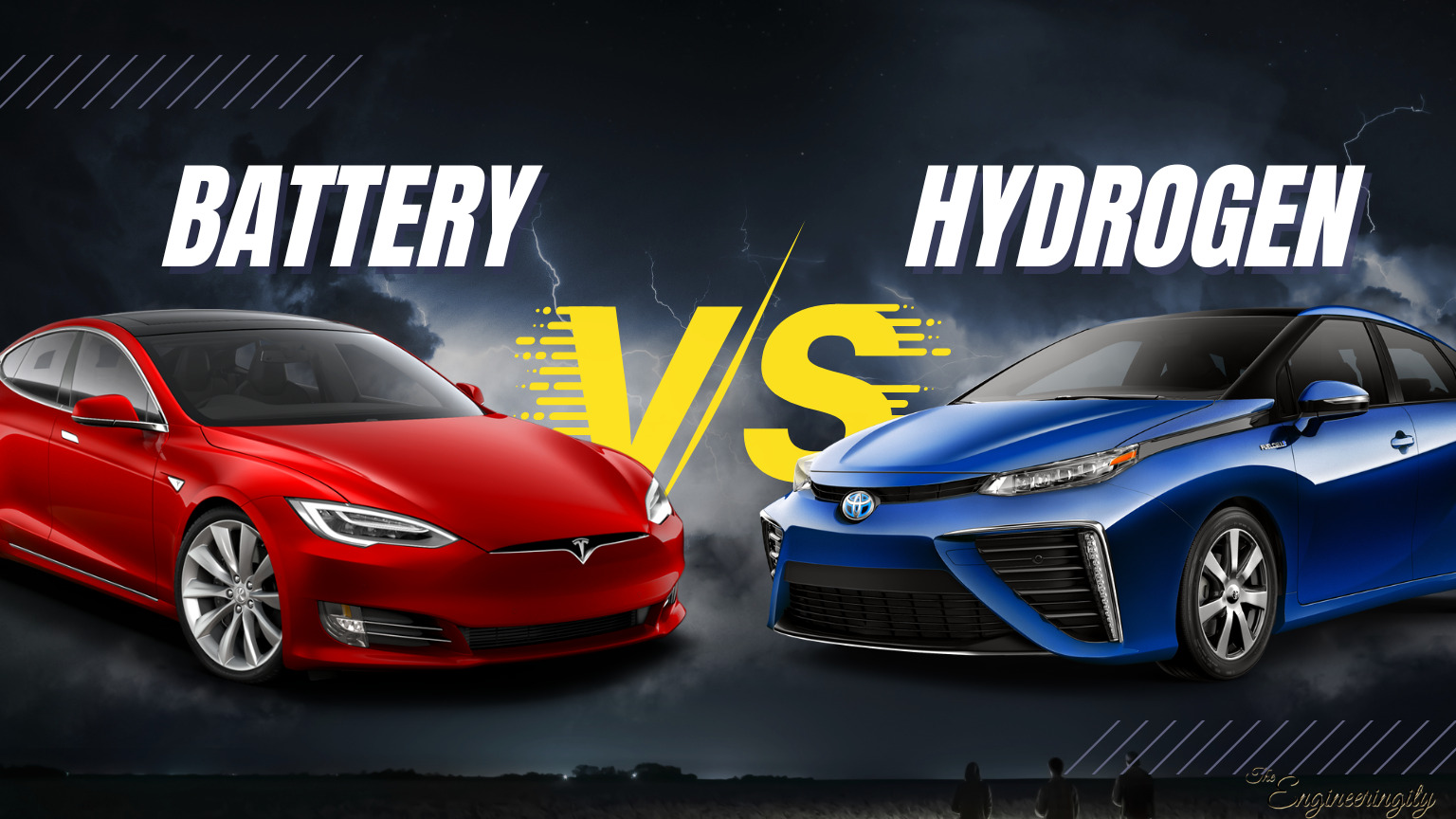Electric Vehicles vs. Hydrogen Fuel Cell Vehicles
In today’s dynamic automotive industry, there is a growing necessity for cleaner and more sustainable transportation solutions. Electric Vehicles (EVs) and Hydrogen Fuel Cell Vehicles (HFCVs) have risen to prominence as leading players in this eco-conscious transformation. Within this article, we will conduct an in-depth examination of these environmentally friendly technologies, equipping you with the knowledge needed to make an educated choice for your next vehicle.
The Power Source
Electric Vehicles: Powered by Lithium-ion Batteries
Electric vehicles are propelled by electricity stored in high-capacity lithium-ion batteries. These batteries efficiently store and discharge electrical energy to power the vehicle’s motor. This setup provides a clean and quiet driving experience with zero tailpipe emissions, making EVs an attractive option for environmentally conscious consumers.
Hydrogen Fuel Cell Vehicles: Harnessing the Power of Hydrogen
Conversely, Hydrogen Fuel Cell Vehicles employ hydrogen gas to produce electricity through a chemical reaction involving oxygen within the fuel cell. This process produces electricity, which then powers the vehicle’s electric motor. HFCVs emit only water vapor as a byproduct, making them another eco-friendly choice.
Charging Infrastructure
Electric Vehicles: Widespread Charging Network
One significant advantage of electric vehicles is the extensive charging infrastructure developed globally. Charging stations are accessible in urban settings, along highways, and within residential communities. This widespread availability makes charging an electric vehicle convenient and accessible.
Hydrogen Fuel Cell Vehicles: Limited Refueling Stations
In contrast, hydrogen refueling stations are less common and concentrated in specific regions. This limited infrastructure can make refueling a Hydrogen Fuel Cell Vehicle more challenging, especially for those living in areas that need easy access to hydrogen stations.

Range and Efficiency
Electric Vehicles: Impressive Range Variability
EVs come in various models with varying battery capacities, offering different ranges on a single charge. High-end electric vehicles can achieve over 300 miles on a single charge, while smaller models may offer a more modest range. The efficiency of EVs continues to improve with advancements in battery technology.
Hydrogen Fuel Cell Vehicles: Competitive Range
HFCVs typically offer a competitive driving range, often on par with gasoline-powered vehicles. They can be refueled quickly, providing a driving experience similar to conventional cars. However, the limited refueling infrastructure can still be a drawback.
Environmental Impact
Electric Vehicles: Zero Tailpipe Emissions
One of the primary reasons consumers opt for electric vehicles is their minimal environmental impact. EVs produce zero tailpipe emissions, reducing air pollution and greenhouse gas emissions and contributing to a greener planet.
Hydrogen Fuel Cell Vehicles: Minimal Emissions
Hydrogen Fuel Cell Vehicles also have a low environmental footprint, emitting only water vapor as a byproduct. However, the production of hydrogen can involve carbon emissions unless it’s sourced from renewable energy.
Cost Considerations
Electric Vehicles: Affordable Options
EVs are available in a wide price range, with many affordable models on the market. Additionally, electric vehicles benefit from lower operating costs, thanks to the efficiency of electric motors and fewer moving parts.
Hydrogen Fuel Cell Vehicles: Higher Initial Costs
HFCVs, on the other hand, tend to be more expensive due to the complex technology involved in hydrogen fuel cells. However, some governments offer incentives to offset the higher upfront costs.
Conclusion
Both technologies have their merits in the Electric Vehicles vs. Hydrogen Fuel Cell Vehicles showdown. Electric vehicles are more readily accessible with an extensive charging infrastructure, while hydrogen fuel cell vehicles offer competitive driving ranges and fast refueling. The choice ultimately depends on your specific needs and local infrastructure.
As the automotive industry continues to innovate, it’s clear that both electric and hydrogen fuel cell vehicles play pivotal roles in reducing our carbon footprint and transitioning to a more sustainable future. Whichever path you choose, you can be confident that you’re contributing to a cleaner and greener world.
